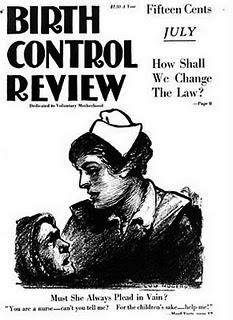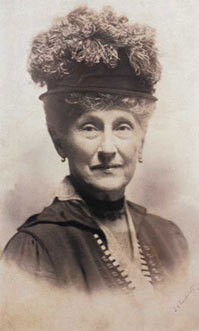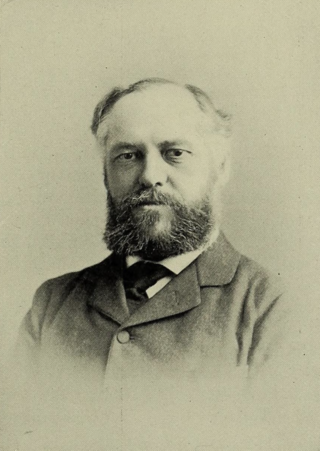Related Research Articles

The Progressive Era (1896–1917) was a period of widespread social activism and political reform across the United States focused on defeating corruption, monopoly, waste and inefficiency. The main themes ended during American involvement in World War I (1917–1918) while the waste and efficiency elements continued into the 1920s. Progressives sought to address the problems caused by rapid industrialization, urbanization, immigration, and political corruption; and by the enormous concentration of industrial ownership in monopolies. They were alarmed by the spread of slums, poverty, and the exploitation of labor. Multiple overlapping progressive movements fought perceived social, political and economic ills by advancing democracy, scientific methods, professionalism and efficiency; regulating businesses, protecting the natural environment, and improving working conditions in factories and living conditions of the urban poor. Spreading the message of reform through mass-circulation newspapers and magazines by "probing the dark corners of American life" were investigative journalists known as “muckrakers". The main advocates of progressivism were often middle-class social reformers.

The social hygiene movement was an attempt by Progressive era reformers to control venereal disease, regulate prostitution and vice, and disseminate sexual education through the use of scientific research methods and modern media techniques. Social hygiene as a profession grew alongside social work and other public health movements of the era. Social hygienists emphasized sexual continence and strict self-discipline as a solution to societal ills, tracing prostitution, drug use and illegitimacy to rapid urbanization. The movement remained alive throughout much of the 20th century and found its way into American schools, where it was transmitted in the form of classroom films about menstruation, sexually transmitted disease, drug abuse and acceptable sexual behavior in addition to an array of pamphlets, posters, textbooks and films.

Julia Clifford Lathrop was an American social reformer in the area of education, social policy, and children's welfare. As director of the United States Children's Bureau from 1912 to 1922, she was the first woman ever to head a United States federal bureau.

Progressivism in the United States is a political philosophy and reform movement in the United States advocating policies that are generally considered left-wing, left-wing populist, democratic socialist, libertarian socialist, social democratic, and environmentalist. In mainstream American politics, progressives generally advocate a universal healthcare system, wage equity and labor rights, economic justice, social justice, opposition to the military–industrial complex, an increase in corporate regulation, the abolition of capital punishment, and action on climate change.
Neo-prohibitionism is a current movement to attempt to stop consumption of alcohol in society through legislation and policies which further restrict the sale, possession, and marketing of alcohol in order to reduce average per capita consumption and change social norms to reduce its acceptability.
The Lincoln–Lee Legion was established by Anti-Saloon League-founder Howard Hyde Russell in 1903 to promote the signing of abstinence pledges by children. The organization was originally called the Lincoln League, named after Abraham Lincoln. However, in 1912 it was renamed the Lincoln–Lee Legion, adding a reference to Robert E. Lee in order to make it more appealing to southern children and their parents.

The American Issue Publishing Company, incorporated in 1909, was the holding company of the Anti-Saloon League of America. Its printing presses operated 24 hours a day and it employed 200 people in the small town of Westerville, Ohio, where the company had its headquarters. Within the first three years of its existence the publishing house was producing about 250,000,000 book pages per month, and the quantity increased yearly. This dwarfed the output of the National Temperance Society and Publishing House, which took over half a century to print one billion pages.
In the history of the United States, a clean living movement is a period of time when a surge of health-reform crusades erupts into the popular consciousness. This results in individual, or group reformers such as the anti-tobacco or alcohol coalitions of the late twentieth century, to campaign to eliminate the health problem or to "clean up" society. The term "Clean Living Movement" was coined by Ruth C. Engs, a Professor of Applied Health Sciences at Indiana University in 1990.

The National Birth Control League was a United States organization founded in the early 20th century to promote sex education, the use of means and methods to prevent conception, to lobby for a change in legislation making this illegal, and to bring up courtcases with the aim to change jurisprudence, enabling birth control.
Ruth Clifford Engs is Professor Emeritus, Applied Health Science, Indiana University, Bloomington, IN. Since the mid-1990s she has been engaged in research on social movements related to health and public health issues with a focus on the Progressive Era.
The American Sexual Health Association (ASHA), formally known as the American Social Hygiene Association and the American Social Health Association, is an American nonprofit organization established in 1914, that cites a mission to improve the health of individuals, families, and communities, with an emphasis on sexual health, as well as a focus on preventing sexually transmitted infections and their harmful consequences. ASHA uses tools such as education, communication, advocacy and policy analysis activities with the intent to heighten public, patient, provider, policymaker and media awareness of STI prevention, screening, diagnosis and treatment strategies.
The American School Health Association (ASHA) is a professional association. It claims a membership of 1,000 members in all 50 US states and other nations. More than half practice in K-12 schools or administer health education or health services programs in school districts or state departments of education.
Orthopathy or natural hygiene (NH) is a set of alternative medical beliefs and practices originating from the Nature Cure movement. Proponents claim that fasting, dieting, and other lifestyle measures are all that is necessary to prevent and treat disease.

Elizabeth Milbank Anderson, American philanthropist and advocate for public health and women's education, was the daughter of Jeremiah Milbank (1818–1884), a successful commission merchant, manufacturer and investor, and Elizabeth Lake (1827–1891). Anderson established in 1905 one of the first foundations funded by a woman, the Memorial Fund Association, with gifts of $9.3 million by the time of her death. Anderson in her lifetime supported a wide range of health and social reform efforts during the Progressive Era, from tuberculosis and diphtheria eradication to relief work for European children following World War I, for which she was made in 1919 a Chevalier of the Legion of Honor by the French government.
Robert Jackson Alexander was an American political activist, writer, and academic who spent most of his professional career at Rutgers University. He is best remembered for his pioneering studies on the trade union movement in Latin America and dissident communist political parties, including ground-breaking monographs on the International Communist Right Opposition, Maoism, and the international Trotskyist movement.

School hygiene or school hygiene education is a healthcare science, a form of the wider school health education. The primary aims of school hygiene education is to improve behavior through useful practices connected to personal, water, food, domestic and public hygiene. Also, it aims to protect water and food supplies and to safely manage environmental factors.

Francis Greenwood Peabody (1847–1936) was an American Unitarian minister and theology professor at Harvard University.
The Race Betterment Foundation was a eugenics and racial hygiene organization founded in 1914 at Battle Creek, Michigan by John Harvey Kellogg due to his concerns about what he perceived as "race degeneracy". The foundation supported conferences, publications, and the formation of a eugenics registry in cooperation with the ERO. The foundation also sponsored the Fitter Families Campaign from 1928 to the late 1930s and funded Battle Creek College. The foundation controlled the Battle Creek Food Company, which in turn served as the major source for Kellogg's eugenics programs, conferences, and Battle Creek College. In his will, Kellogg left his entire estate to the foundation. In 1947, the foundation had over $687,000 in assets. By 1967, the foundation's accounts were a mere $492.87. In 1967, the state of Michigan indicted the trustees for squandering the foundation's funds and the foundation closed.

Daniel Hartman Kress was a Canadian physician, anti-smoking activist, Seventh-day Adventist missionary and vegetarian.
References
- 1 2 3 4 5 6 7 8 9 Engs, Ruth C. (2003). The progressive era's health reform movement: a historical dictionary. Westport, CT: Praeger Publishers. pp. 20–22. ISBN 0-275-97932-6.
- 1 2 Proceedings of the Fifth Congress of the American School Hygiene Association. Springfield, MA: ASCHA. 1911. p. 13.
- ↑ Engs, Ruth C. (2003). The progressive era's health reform movement: a historical dictionary. Westport, CT: Praeger Publishers. p. 20. ISBN 0-275-97932-6.
- ↑ Proceedings of the Congress of the American School Hygiene Association. Vol. 6. American School Hygiene Association. 1917. p. 9.
- ↑ Engs, Ruth C. (2003). The progressive era's health reform movement: a historical dictionary. Westport, CT: Praeger Publishers. pp. 21–22. ISBN 0-275-97932-6.
- ↑ "About ASHA - American School Health Association". ASHA. Archived from the original on 25 January 2012. Retrieved 24 September 2011.